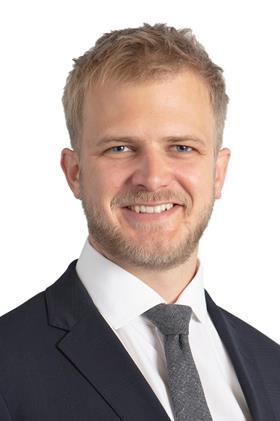By Paul Chandler, Director of Stewardship, PRI

We strongly believe that stewardship is the most powerful tool investors have at their disposal to align our economy and society with the interests of beneficiaries and wider stakeholders. The problem is, we’re not using it to its fullest potential.
Today, PRI launches a programme designed to change that by setting clear expectations for how stewardship can be used to deliver substantial real change in our global economy, environment and society – and in doing so, deliver on the mission that underpins the PRI itself.
Inherent in the powerful role stewardship can play is the role of institutional investors in global capital markets and our economic system. They can propose and vote on shareholder resolutions, sign off remuneration plans, appoint board members, or even sit on boards themselves. They can use their position as provider of capital to ask for changes in the companies they’re invested in. They can request and support governments and regulators to set or change the rules of our economic system.
Investors have beneficiaries – ordinary citizens with savings or pensions – to whom they owe a “best interests” duty. The problem is, on aggregate, investors’ collective influence – their stewardship – is at serious risk of failing to deliver both the long-term returns and the society and environment that is demonstrably in their “best interests”.
Our global economy is hurtling us towards 3 or more degrees of warming, and irreversible tipping points in our climatic system. It is driving income inequality to levels last seen in the 1920s. It is rewarding the avoidance or evasion of corporate tax, and funding – using what is ultimately beneficiaries’ capital – short-term vested interests; weakening policy in such a way as to undermine the interests of those same beneficiaries.
The ills of society continue because many institutional investors have been reluctant to use the influence they have. Where they have used this influence, they’ve taken tentative steps, focusing on the short-term and on individual holdings in their portfolio rather than the bigger picture. Exacerbating this problem is that many investors have not properly resourced policy advocacy functions that could move the needle on some of these issues.
Of course, there are examples of positive investor action. The foundation of the PRI itself back in 2006 was in part a response by the investment industry – in particular, asset owners – to these exact problems. We’ve recently seen further successes as part of Climate Action 100+, with tangible commitments made by companies such as Shell to set scope 3 emissions targets.
Unfortunately, these successes are the exception, not the rule. As we face growing systemic risks that cannot be diversified away – from trade wars to climate catastrophe – the willingness to act more assertively to safeguard long-term outcomes for beneficiaries is not keeping pace with the actions needed or being undertaken at the scale required.
In response to this, today the PRI launches a programme for the future of stewardship.
Our first paper sets out the case for change, explaining how investor myopia limits the potential of stewardship. It proposes an aspirational higher standard for evolved active ownership in which investors work to deliver real-world outcomes on critical systemic issues using strengthened collaboration to get us there. We will shortly invite signatory input on this vision and ideas on how we can collectively take active ownership to the next level.
Over the coming year, we’ll be adding to this with further guidance on practical implementation – particularly where it comes to investors’ proxy voting and real-economy policy advocacy. As part of the ongoing review, we will also be working to align our reporting and assessment framework in order to encourage and reward the leadership that is already starting to emerge in these areas.
Stewardship is investors’ best shot at putting our economy and society on a sustainable path. We must use it to its fullest potential.
The PRI today released a discussion paper Active ownership 2.0: the evolution stewardship urgently needssetting out our vision. We invite signatories and stakeholders to read this paper and respond to the short online consultation which will shortly be made available on the PRI Collaboration Platform. Questions and feedback are welcome via [email protected].
This blog is written by PRI staff members and guest contributors. Our goal is to contribute to the broader debate around topical issues and to help showcase some of our research and other work that we undertake in support of our signatories.
Please note that although you can expect to find some posts here that broadly accord with the PRI’s official views, the blog authors write in their individual capacity and there is no “house view”. Nor do the views and opinions expressed on this blog constitute financial or other professional advice.
If you have any questions, please contact us at [email protected].








